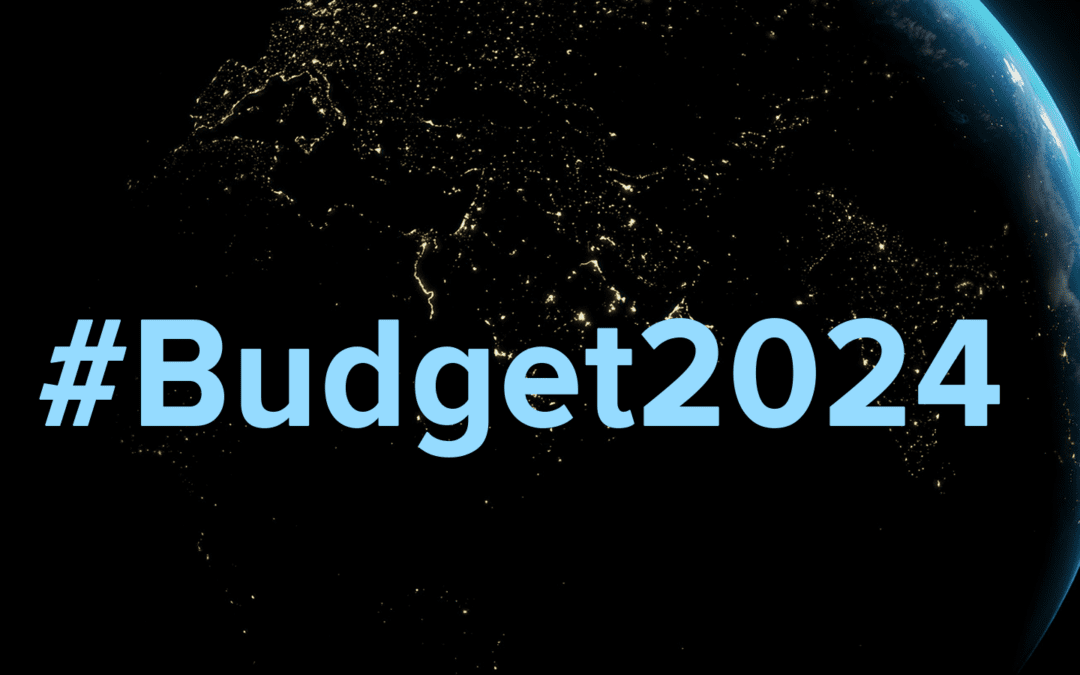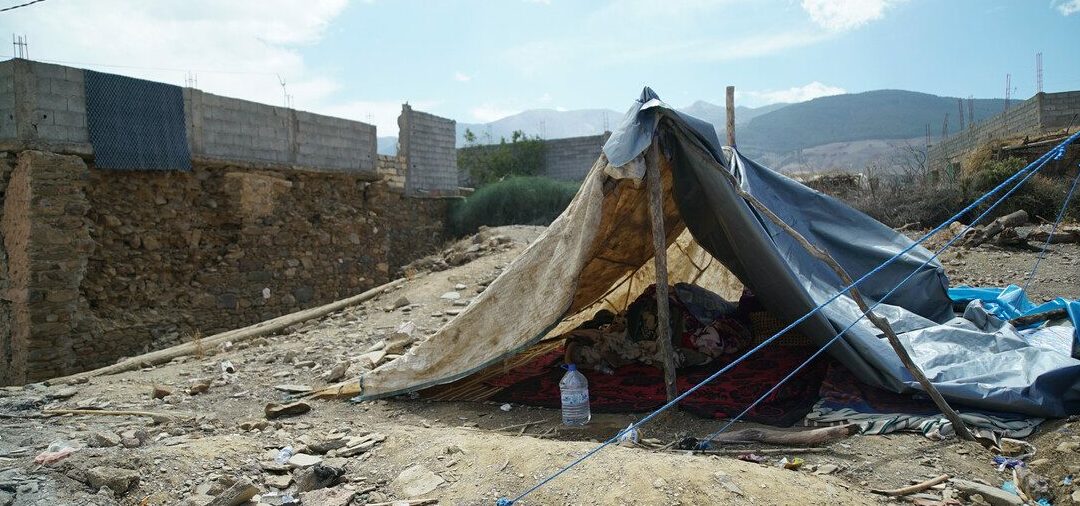Six months since the and the escalation of the conflict in Gaza, CARE spoke to displaced mothers about their current living situation, their biggest fears and their wishes for the future. Nearly 1.9 million people—about 85 per cent of Gaza’s population—have been displaced, and all 2.3 million Gazans are at risk of starvation. Of the 32,975 killed and 75,577 injured, the majority are women and children.
Nowhere and no one in Gaza is safe, and mothers and their children continue to be hit the hardest.
All names have been changed for safety.
All photos: Yousef Ruzzi/CARE
Nadia
“I fear for my children’s lives. They are sick all the time.”
Nadia is a mother of two and has already lost her niece and nephew. She is afraid she will also lose her children to sickness or the bombs.


“I cannot believe it has already been six months since the war started.
It was the 17th of October when the bombs were dropped on our neighbourhood. We fled to another area and stayed in a school. Shortly after, the school we took shelter in was also bombed and we fled to Rafah, where we now live in a tent. We thought we were safe here, but a few days ago we were told that we should evacuate soon. No one told us though where we can go!
Nowhere seems safe. The living conditions are terrible. We are living in the middle of the street; this is where we were able to set our tent up. Everyone is suffering, physically and psychologically. It is hard for a human being to constantly live in fear, expecting the worst to happen at any moment.




The most difficult part for me is that I worry for my two children. I had to take them to the hospital a few times because they are always sick now. They are so small, and I worry they will die of a virus if they don’t die from the bombs. It has been really cold and the only clothing I could take were a few items I grabbed when the bombs were falling around us. We don’t have any mattresses and the cold is creeping through the thin mats we are sleeping on.
I keep thinking of my small nephew and niece, who died a few weeks ago. I cannot believe I will never be able to see them again.
Sawsan
“I heard my children’s screams when we were buried under the rubble. My biggest fear was that I lost them.”
Sawsan takes care of her six children all by herself. She falls asleep and wakes up crying each day.




“What we have had to live through cannot be worse than what hell might feel like.
On the 15th of November, our house was bombed while we were at home. When they pulled me from under the rubble, all I could think of was “Where are my children”. I don’t think there is anything worse for a mother than losing her child. I have never felt such horror and pain as when I thought I had lost them.
I heard them screaming, but it took us a while to find them all under the rubble. They are still so small and fragile. Thankfully, all of my six children survived, though we were all injured. My mother-in-law, my brother-in-law and my brother were killed. I miss them so much.
My husband is trying to find a way of earning some money as we have lost everything. I cry when I sleep. I cry when I wake up. During the day, I try to be strong for my children. I miss my family members who were killed, I miss my house, I miss my husband. We sleep in fear and wake up in fear. The sounds of the airplanes and bombs are keeping us up at night. My youngest daughter is six years old. She shakes in fear even when she is sleeping. I feel so helpless and powerless, yet I must take care of them.
I wish that my children and the children of Gaza can live in peace and safety again. My daughters and sons want to become lawyers, engineers and dentists. I want them to have a life and to live their dreams. I don’t want their futures wasted because of this war. I don’t want their lives to be dictated by fear and hunger.”


Salam
“More than anything I miss seeing smiles on people’s faces. There is no joy. Everyone is mourning.”
Salam wishes that her children can grow up in peace and stability.
“The food we have been eating for the past six months is making us all sick.
I have four children: three girls and one boy. We had to leave our house seven days after the war started and were told we should go south. We took shelter in a school, which was then bombed without warning. Thankfully, we all survived.






We now live in Rafah in a tent. We don’t feel safe, and we haven’t felt any joy for six months. I got so sick from the lack of proper food that I had to go to hospital for two days. It takes hours every day to get water, and the water we get is polluted or very expensive. It breaks my heart that my children cannot go to school; they don’t want to play either. My husband’s mother died, and my family is still in Gaza city. I haven’t been able to reach them, and I do not know whether they are dead or alive. More than anything I miss seeing smiles on people’s faces. There is no joy. Every day we lose someone who is dear to us. Everyone around us is sad and in mourning.
My children are cold all the time. I think any mother in this world can imagine how hard it is if your child is cold and suffering, and there is simply nothing you can do but hug them… and yet you still feel them shaking from cold and fear. A few days ago, CARE supported us with mattresses, blankets and pillows. Our situation is thankfully a bit better now—at least we are not cold anymore.
All that I want is an end to this occupation and for my children to grow up in peace and stability.”
Lara
“My daughters follow me everywhere and never want to be alone.”
Lara is divorced and lives with three of her five children in a tent in Rafah. Her asthma is getting worse from all the burnt firewood, making it hard for her to breathe.




“These past six months have been so exhausting. I fled with three of my five children—I am divorced, and my ex-husband has custody over two of my daughters. There were missiles everywhere when we left our house. Initially, we fled with my mother and my sister-in-law, but we were separated during the bombardments. First we fled in a car, but then later we simply had to run from the bullets. We took shelter in a hospital which was then bombed. For a while, we stayed in empty houses as we were too tired to continue.
I suffer from asthma and severe migraines. Living in a tent, the smoke from firewood all around us makes it very hard for me to breathe. I also have issues with my legs. When I walk, they swell. Having to run for my life was very hard for me.
My children are also not the same anymore. Wherever I go, they follow me. They don’t want to stay in the tent by themselves for even a minute. They don’t go out to play—they just want to stay next to me.
I hope, for my daughters, that life will become easier and that this war will end. I wish for my daughters that happiness will return, and that they can do what they want with their lives.”


CARE West Bank and Gaza
CARE International has been operating in the West Bank and Gaza since 1948. Prior to the current conflict, we were supporting about 200,000 Palestinians in Gaza and we continue to support about 300,000 in the West Bank to meet basic food needs, improve farming and agriculture, empower women to earn an income, support women’s leadership, and improve health programs focused on gender-based violence, sexual and reproductive health and children’s mental health.
Since the escalation of the conflict, the CARE team in Gaza was able to reach over 250,000 vulnerable displaced people with hygiene kits, shelter items such as blankets and mattresses, and drinking water. CARE also reached over 67,000 people with medical support, including medications, medical supplies and primary health services.




